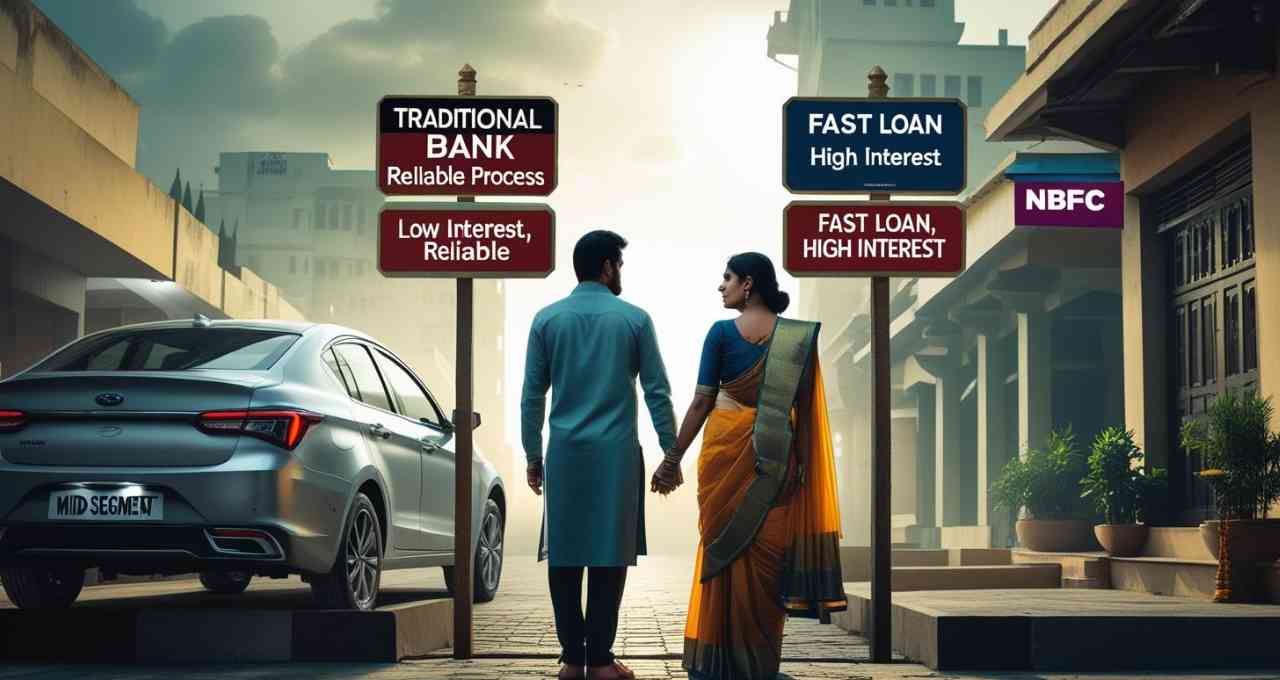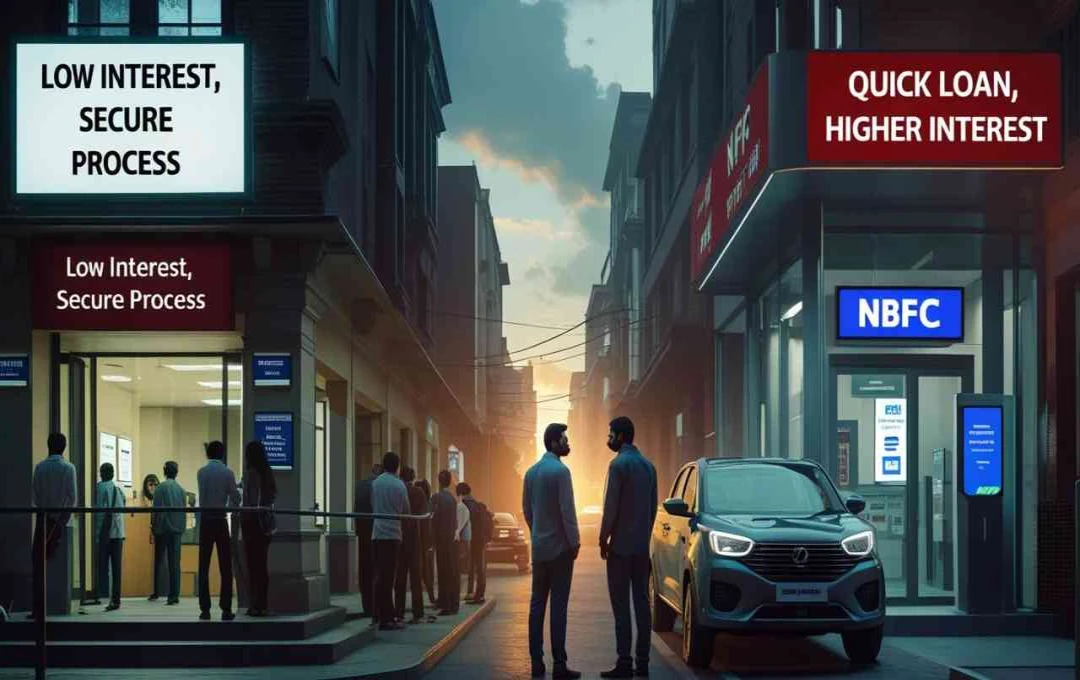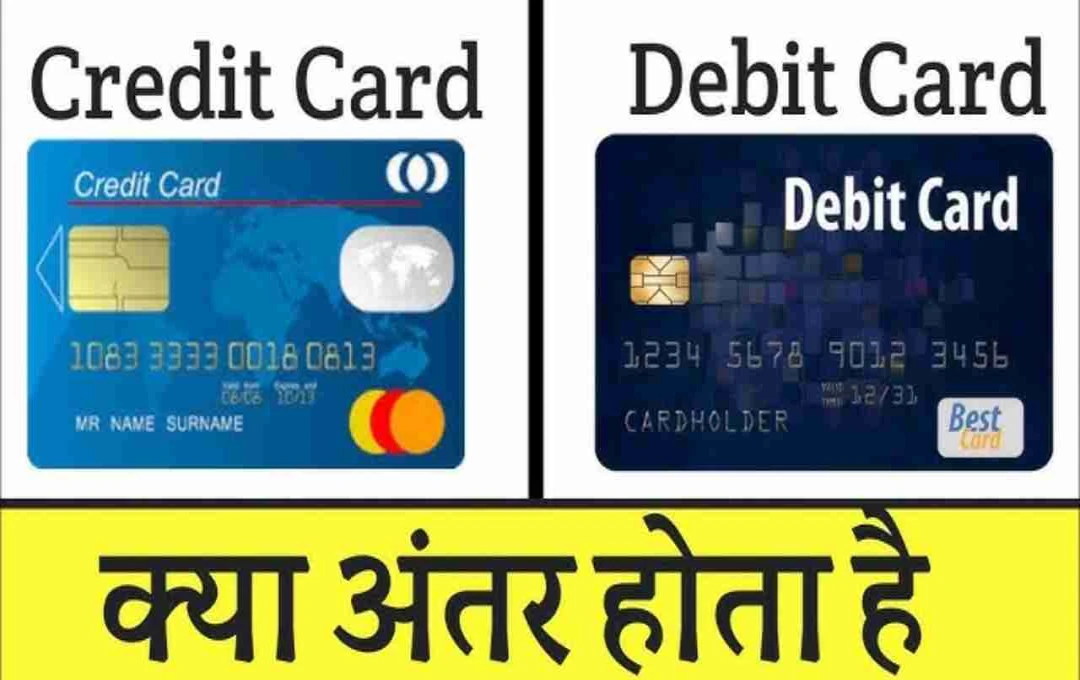Many people rely on financing to fulfill their dream of buying a car. This raises the question: are banks or NBFCs better for car loans? Both have advantages and limitations. This article explains the differences between these options and which might be more beneficial in different situations.
Why is car financing becoming increasingly popular?

Today, a car is no longer a luxury but a necessity. People in smaller towns and cities are increasingly purchasing cars. However, not everyone can afford a large upfront payment. This is why car financing is rapidly gaining popularity. Banks and NBFCs both offer car loans, but their operational methods differ.
Bank Loans: Reliable but Time-Consuming

The main advantage of securing a car loan from a bank is the lower interest rates. Government banks may offer even lower rates. Typically, banks provide car loans at an interest rate between 8% and 10%.
However, certain conditions apply. For example, you'll need a good credit score, have to provide complete income details, and submit extensive documentation. Loan approval can take 3 to 7 days.
Advantages of Bank Loans:
- Lower interest rates
- Transparent and secure payment process
- Easy access to larger loan amounts
Disadvantages:
- Extensive paperwork
- Lengthy processing time
- Difficulty obtaining a loan with a poor credit score
NBFC Loans: Quick Approval, but Higher Interest

NBFCs (Non-Banking Financial Companies) such as Bajaj Finance, Mahindra Finance, or HDFC Ltd. also offer car loans. Their primary advantage is the quick loan disbursement – sometimes within 24-48 hours.
NBFC loans can be a good option for individuals with a weaker credit score or those needing quick loan approval.
Advantages of NBFC Loans:
- Minimal documentation
- Digital and faster processing
- Higher chances of loan approval even with a weak credit score
Disadvantages:
- Higher interest rates (10% to 16%)
- Some companies may charge processing fees and hidden charges
- Less regulation compared to banks
How to Decide Which Option is Right for You?

Financial experts advise evaluating your income, expenses, credit score, and repayment capacity before taking any loan.
If you prioritize lower interest rates and can handle a longer processing time, a bank loan is advisable. However, if you need a car urgently and require a quicker process, an NBFC might be a better choice, despite potentially higher interest rates.
Both banks and NBFCs can be suitable for car financing – it depends on your specific needs. Compare the terms and interest rates of several institutions before taking a loan to avoid unexpected charges or conditions.












